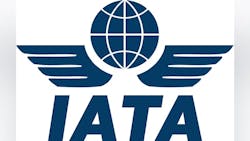Sustainable Transport Investment Plan Marks Progress on Aviation Decarbonization, But More Action Needed
The International Air Transport Association (IATA) welcomed the European Commission’s Sustainable Transport Investment Plan (STIP) as an important acknowledgment of the urgent need to accelerate aviation decarbonization. While the plan addresses several long-standing gaps in the EU’s strategy, IATA said further measures are required.
“We welcome the Commission’s recognition of market challenges stemming from flawed SAF mandates, particularly the price gap between sustainable and conventional fuels and the need for strong investment support. Expanding SAF support under the EU ETS; exploring tradable SAF and book-and-claim mechanisms; simplifying reporting; improving access to sustainability certificates through the Union Database (UDB); and advancing dual conformance of SAF under EU RED and CORSIA are positive steps. But we need to see action,” said Willie Walsh, IATA Director General. “We are concerned that STIP falls short of critical industry expectations. We hope this is the start of broader EU review that ultimately delivers a more effective aviation decarbonization program.”
IATA highlighted three key areas where STIP requires further progress:
Enabling Book-and-Claim SAF in Europe
IATA welcomed the Commission’s acknowledgment of tradable SAF certification mechanisms, including book-and-claim, which can help address uneven SAF supply at airports and support new production investment. To enable EU-wide purchase-based SAF crediting, the association urged amendments to the EU ETS during its upcoming review to better align with ReFuelEU Aviation. IATA also called for expedited upgrades to the UDB, noting that book-and-claim is central to the proposed intermediary mechanism.
Prioritizing Demand-Side Needs
IATA said operators need a predictable SAF market with clear pricing to plan daily operations. Under the current framework, airlines face disproportionately higher SAF and jet fuel prices. While boosting SAF production capacity is essential, IATA stressed the need for a transparent, open market that supports both supply and demand. Enhancements to the UDB are critical, and the association said it stands ready to support that effort.
Technology-Neutral SAF Support
While STIP acknowledges biofuels, it continues to emphasize e-SAF due to feedstock concerns. IATA cited recent analysis showing significant untapped sustainable feedstock potential across Europe. A technology-neutral approach supporting biofuels and e-SAF is needed to reach projected global SAF demand of 500 million tonnes by 2050. Prioritizing e-SAF alone, IATA said, could weaken scalability and cost-effectiveness and delay emissions reductions.
“IATA stands ready to work with the Commission to resolve these gaps and ensure STIP becomes a coherent, investment-ready framework. Clarifying timelines for major initiatives, including upcoming EU ETS and ReFuelEU reviews, will be essential to guide appropriate market action. The airline industry is committed to achieving net-zero emissions by 2050, but that goal requires policies that align with industry needs and the scale of the challenge,” Walsh said.
